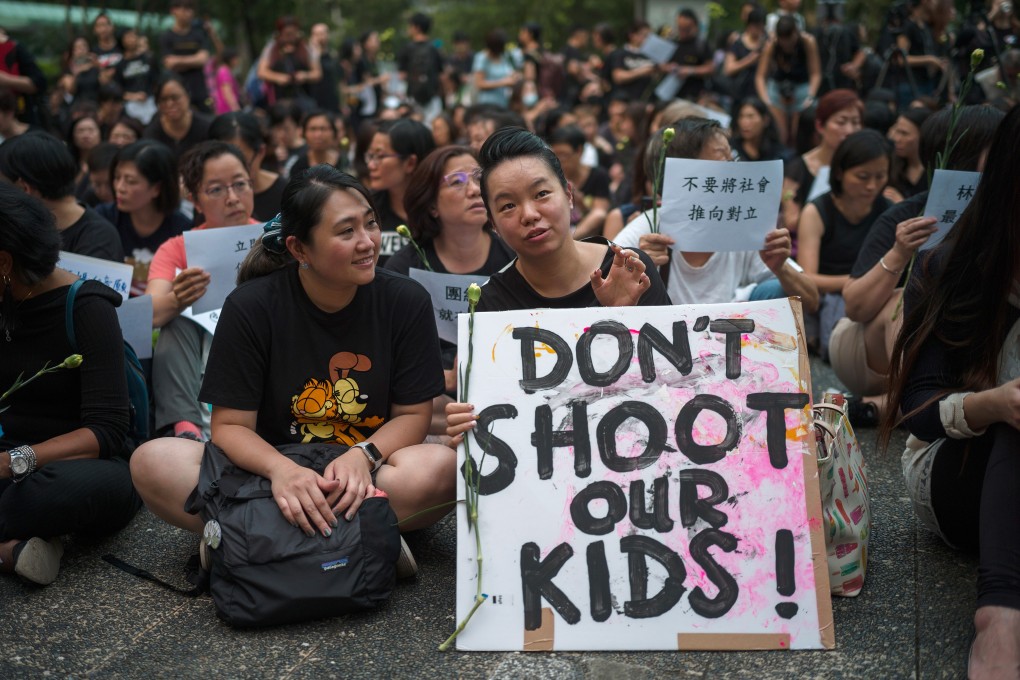Advertisement
Opinion | How mum became the word in Hong Kong’s extradition protests
- Whether used in support of the government or to castigate it, the potent symbol of motherhood has been animating speeches, memes and slogans. The problem is, it plays into China’s reductive narrative of Hong Kong as the prodigal son
Reading Time:3 minutes
Why you can trust SCMP

Last week, a meme circulated on social media comparing Hong Kong Chief Executive Carrie Lam Cheng Yuet-ngor crying during a television interview over the sacrifices she has made to serve Hong Kong with a woman – dubbed “real and kind mother” – pleading with the police not to harm the young people protesting against the government’s extradition bill on June 12. Another social media post contrasted a photograph of Lam with her son to one of a protester bleeding on the ground.
Advertisement
In the interview, Lam alluded to herself as a mother who could not simply give in to her children when they act out. Internet users contrasted Lam's concern with the maternal anguish felt for the protesters who blocked roads and were tear-gassed and beaten by police.
A petition with over 44,000 signatures on June 14 objected to Lam styling herself as the proverbial “good mother”: “We are a group of mothers in Hong Kong, and we would definitely not use tear gas, potentially lethal rubber bullets and bean bag rounds on our own children, and we would not be able to stay unmoved if we see young people covered with blood after being bashed by police batons.”
In a column in the Post on June 13, headlined “When Hong Kong police hurt our children, rather than protect them, they shatter our trust in good governance”, clinical psychologist Bertie Wai writes of being moved by the “young faces” of protesters, noting: “Thirty years [after the Tiananmen Square crackdown], we are still begging for our children’s safety.”
The women supporting the protesters under the banner of motherhood are thus placed in a genealogy of courageous mothers that includes the Tiananmen Mothers, who have continued to demand justice for their children in the face of 30 years of Chinese government denial.
Cultural theorist Ashis Nandy has pointed out how Gandhi, who popularised the ideal of civil disobedience that many Hong Kong protesters are inspired by, subverted the colonialist narrative of the colonised as effeminate by valorising maternal power in his anti-colonial struggle, whereby women were said to embody a spirit of non-violence that men should emulate.
Advertisement
The sit-in of Hong Kong mums at Chater Garden in Central on June 14 in support of the protesters, which organisers say attracted at least 6,000 people, some holding posters saying “Don’t shoot our children”, could be seen as an example of this strategic deployment of maternal power.

Advertisement
